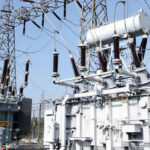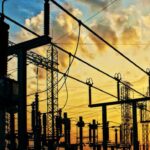If what this land needs is a Moses, then that means it is yet to find a god. This godlessness means we are yet to find the values and ideals, the purpose and the direction marshaled by a leadership able to sweep the population off its feet, notwithstanding its intractable fissures, and then plant them back on the ground firmly.
We must be able and ready to subordinate our primal interests to another interest we all agree must override the demands of natural identities. There is a reason why hiding behind a particular identity became a viable anthropological idea and if there is suddenly a reason to subordinate that to a new raison d’etre created by new interests transcending personal identity, there will suddenly be a new nation on the loose. For this, a state in which everyone can see themself in must take effect and coalesce, and this state must be a state in which all interests are equitably represented. A very important detail here in our own context is the fact that we see ourselves in the names of those who represent us where we arguably should see ourselves in the ideas and values said representatives stand for.
TCN scores high on power grid reforms, 4 other agenda – CEO
States to get $1bn grant from World Bank Dec – Zainab
For instance, most of the separatist agitations in the United States hearken to the same line about marginalisation from the grand scheme of things. But because the United States is an industrial state, this scheme of things tends to be more about their ideas being left out in the cold economically and culturally than the name of their sons and daughters not making the list of top officials and decision-makers.
Those types of societies seem to have outgrown that, meaning that the currents of leadership have shifted to relevance in industry; in Science, Technology & Innovation and to relevance in popular culture. Certain historians credit the building of the United States to four industrialists – Carnegie, Vanderbilt, Rockefeller and JP Morgan. None of them was ever a political leader. The economic capital that built that country still holds the power to make and unmake there, likewise in the case of Nigeria which was created by political activists, that class is still in charge.
Under the status quo, it is perfectly conceivable that I am just another apologist of my “parasitic” kin and I really wouldn’t blame anyone for that. The mere fact that I said something does not give it factual validity. We burnt so many bridges between us, we have done absolutely terrible things to each other in the past, why should people not think that? We have no trust, and trust is earned. It is not a material entitlement. I claim no right to being understood or deferred to.
So, what can we do about all of this? We can declare a sociological emergency and then hash out strategies according to our vision. The good news is that some of this is already taking place.
The reason the Nigerian state had to intervene and evolve into an omnipresent patriarch was because the people who became Nigerians in the wake of the British colonial adventures were ill-equipped to take up the challenges of self-agency, of being able to solve problems without bringing down the hand of the patriarch against those problems. It was a whole new and strange world, and virtually no one was sure how to live that life. So the colonial authorities were left with the task of filling that void. Those measures somehow instituted a worldview that is completely dictated by the structures of state, not self-initiative.
There was no Edison to engineer the electric energy industry, no Graham Bell or Tim Berners Lee or even Guglielmo Marconi to revolutionise communications technology, no Rockefeller to pioneer the industrialisation of the fossil fuels value chain, no Vanderbilt to captain the public transportation infrastructure, the Nigerian government had to create NEPA, NBC/NCC, NNPC and NRC among others. We all know how well that went.
The good thing is that the leadership grids of these industries are being shifted back to the society with stellar success. A case in point is the deregulation of telecommunications services. No matter how bad our electric problems are, it is actually just a matter of both time and the powers overseeing the shift to complete it properly. The energy is more capital intensive, much more complicated in the Nigerian context at least. And that is why it will take more time for the same magic to happen.
If it were up to the people what they make of themselves and not the levers of a patriarchal power, there would not have been an Nnamdi Kanu or Sunday Igboho. If that were the case no one would care if the two names on a presidential ticket are Muslim because that will not be the most consequential variable in the equation of self-determination.
It is of course great that this is already happening spontaneously. But with a deliberate consciousness driven by such an agenda, a lot more can be done and done in record time. With that as an actual administrative policy of the Nigerian state, so much of the tension holding us back could be deflated and the trapped energy repurposed productively. Leadership is about solving problems, and if problems can indeed be solved without the necessity of the intervention of national politics, so many leaders would be born instantly in the civil society. None of our problems would stand a chance. The structures of state governance are stretched to their limit; nothing more than their current output should be expected.
 Join Daily Trust WhatsApp Community For Quick Access To News and Happenings Around You.
Join Daily Trust WhatsApp Community For Quick Access To News and Happenings Around You.


